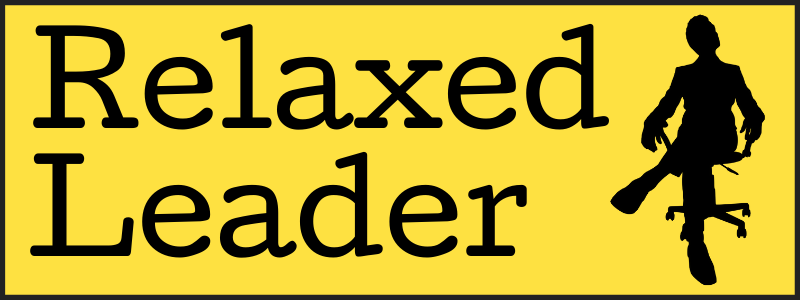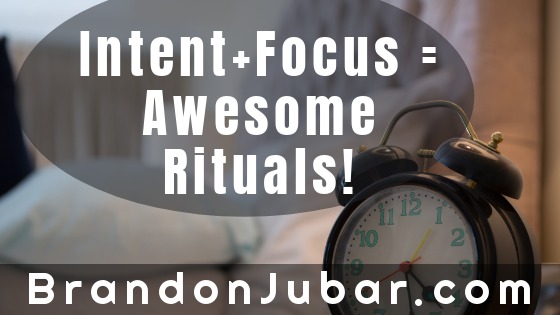Intent and focus are the two factors that turn habits and routines into full-fledged rituals. And as I explained in Part 2 of this series, rituals are critical because they create a virtuous cycle that helps us achieve success.
That’s why when we talk about a ritual, it’s specific in nature but general in its impact. Our 9-to-5 usually calls upon us to do a multitude of activities, so our main rituals aren’t tied to specific tasks. We need to amp up our rituals to the highest levels of effectiveness and that requires intent and focus.
Determine what you intend
Developing a ritual for effectiveness requires that we have a clear goal in mind. It’s about clearly intending a certain outcome. It shouldn’t take a lot of time but we have to put some real thought into it. So we have to ask ourselves, what is our clear intent? What is the goal of the ritual we are trying to develop?
Developing a ritual for effectiveness requires that we have a clear goal in mind.
The intent can be a bit broad but it needs to be clear. If we’re developing a morning ritual, “starting the day right” is too broad and unclear. A better intent might be “starting the day rested, fueled and energized.” It’s broad enough to be a ritual (a series of habits) but clear enough to be effective. “Rested” means we get up at the proper time. “Fueled” means we eat and drink the right things. “Energized” means we include exercise and/or meditation to help get our mind and body ready for the day.
Use focus to improve effectiveness
When I talk about “focus,” I’m not talking about the state of “flow” that is lauded by so many productivity gurus. It’s certainly possible that a perfected ritual of the right type can get you into a state of flow but frankly that’s out of reach for most of us. Besides, it’s not necessary. The kind of focus I’m talking about is something you can do rather easily on your own.
In order to achieve laser-like focus on your ritual, simply eliminate as many distractions as possible. Put your phone on airplane mode. Don’t check your computer. Leave the TV off. Don’t turn on talk radio and avoid podcasts. All of these things will send your mind off in other directions, which will undermine the effectiveness of your ritual. You absolutely must focus on the tasks at hand!
Repetition required for rituals
Habits are the building blocks for both routines and rituals – and habits are things we do without the necessity of will power. That doesn’t necessarily mean we do them without thinking. Yes, many of our habits are mindless and we don’t realize we’re doing them, but the most valuable things we do come from intention and are executed with focus.
When we are building a ritual, repetition is important so that we can begin without thinking. When getting up and immediately putting on our workout clothes can be done without requiring will power – because it’s simply what we do every morning – then it’s extremely easy to hop on the treadmill or hit the weights. Doing your workout with intention and focus will make it much more effective and doesn’t require will power. So once repetition causes a ritual to become second nature, you’ll have more energy to put towards keeping in mind your intention and maintaining a laser focus on what it is you’re doing.
So What?
As we discussed before, life is often chaotic. Conquering the chaos uses up so much brain power and will power that stress and overwhelm are common. Our brains cope with all of this by naturally developing habits and routines. Bringing intention and focus to this natural process allows us to create rituals – and these rituals create the foundation needed to skyrocket productivity, achieve goals, and ROCK the 9-to-5!
Now What?
Journal Prompts: What is the first step in your morning ritual? Is that first step already a habit – something you do without will power – or do you need more repetition for it to become second nature? What can you do to make it easier for you to focus on the activities within your ritual?
Next Action: Ensure that the first step in each of your rituals has become a habit. Understand that the intent of these first steps is to be a trigger, causing you to complete everything that follows without requiring any will power. Once you do that, your energy can be used for intention and focus.
Further Reading: Spend a couple minutes checking out what a few high-performing famous people do every morning by reading “6 Morning Rituals of Steve Jobs, Tony Robbins, Oprah, and Other Successful Leaders.”

